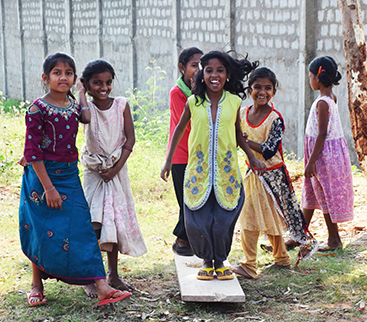
5 Min Read
A Christian Encounter in a Hindu Indian Village with Set Free Alliance
Read More
8 Min Read
Aug 29, 2018
It is almost impossible for a child to receive a quality education when they do not have access to clean water. The physical act of collecting this dirty water takes hours out of a child’s day. And often these children fall ill from the very water they worked so hard to collect. It’s a big problem, but fortunately it has a simple solution. When you drill a new clean water well in a village, the children’s opportunity to receive an education immediately increases, and the benefits of clean water start to rack up. Here are 4 benefits clean water has on education in a third world country:
6 kilometers (or about 3.75 miles). This is the average distance that an African or Southeast Asian will travel to collect water for their family. How long would it take you to walk nearly 4 miles across rugged terrain? Over an hour? Maybe longer? Now imagine that you are walking that distance twice a day while carrying a 40-pound container of water. This is the reality for millions of children all over the world with scarce water resources.
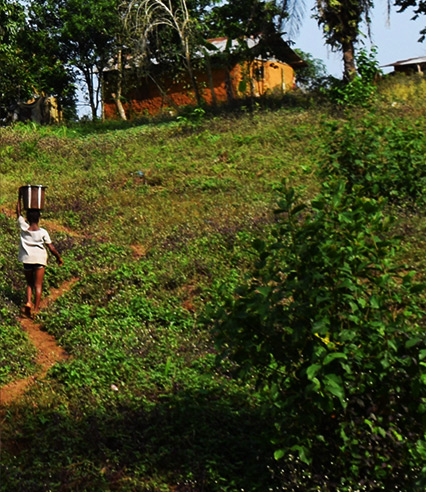
Air, water, and food are the three basics for human survival. Dependent on temperature and sun exposure, a person will only survive without water for a matter of days. Dehydration symptoms such as changes in blood pressure, headache, difficulty with joints, and irregular body temperatures can begin after several hours without water. And when dad can’t miss time from work and still provide for his family and mom must care for the children – it often becomes the responsibility of the children to collect their family’s water.
Providing abundant access to drinking water by drilling a new water well in a village, immediately improves the quality of life in developing nations. What used to take hours now takes a matter of minutes to walk to a village well and pump their family’s bucket of water. This increase in available time allows children to return to school and pursue their education.
In Africa, 90% of the household duties are carried out by women. This includes collecting wood for cooking, gathering the family’s water, and doing all of the food preparation. By some estimates, the collective time in one year that women and girls spend collecting water across sub-saharan Africa is equal to the labor hours completed by the entire workforce of France (about 40 billion hours). In India, if women were able to spend their time on income generating activities instead of water collection, the national GDP of that country would be an estimated 10 billion rupes ($160 million) higher.
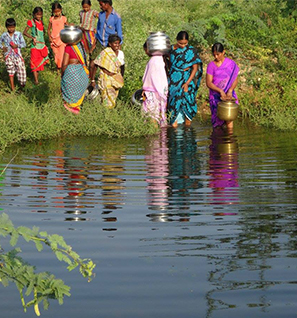
Since so much of the household tasks fall to women, when a child must collect their family’s water, that responsibility is often given to a girl. When that happens, it is their education that ultimately suffers. Lakshmi, a 9-year girl in India, experienced this first-hand.
I loved going to school. All my teachers encouraged me and told me how smart I was. I dreamed of becoming a doctor one day. But all of that changed when the water system in my village broke. We began relying on the irrigation system nearby, but it was so polluted with fertilizers and pesticides – we were left with rashes on our skin.
We found a river about an hour’s walk away where we could collect our water. My father couldn’t go. He worked in the fields nearby. If he missed time from work, he didn’t get paid. My family relied on his income to buy our food, and we were barely getting by. My mom recently had my youngest sister. She was still nursing and wasn’t yet strong enough to carry the heavy container of water. So, I had to do it. I didn’t always mind the walks. A lot of my friends had to go too, so we stuck together and told stories. But the trip back was awful. The water jug was so heavy. It hurt my neck a lot. If I ever spilled any along the way, I had to start all over. But the worst part was the fact I was no longer able to go to school.There were many nights I cried while my brothers worked on their homework. I saw my dreams of becoming a doctor slowly slipping away.
Unfortunately, the water that people are spending hours a day collecting is the same water that is often making them sick. If the population living in a village does not have their own well or water supply, they collect water wherever they can find it. Depending on the season, rainy/monsoon or dry, these sources vary from open wells and irrigation canals to rivers, ponds, creeks, and streams. These sources are the same ones used to do laundry, bathe, and water animals. Sadly, these sources are often contaminated and water-borne disease spreads rapidly.
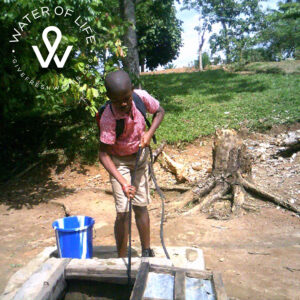
The World Health Organization estimates that 2 million people die from water-related diarrhoeal diseases each year. The majority of these deaths come from children under the age of 5. Even if a child survives an illness like typhoid fever, they aren’t attending school while they fight to recover. In fact, 443 million school days are lost each year due to water-related illnesses in third world countries. That is a lot of missed educational opportunities for something as simple as clean water.
The benefits of improving the water quality by providing clean water to an entire village are easy to see. In fact, a government official serving an area of West Africa where Set Free had drilled wells in numerous villages, remarked during the first rainy season that she was shocked the villages did not have a cholera outbreak.Giving fresh water through new bore wells eliminated a common disease outbreak from a region in West Africa. And since the children in that area did not fall ill, they are able to remain in school for the entire public school year.
Without an education, whether it be from missed school days due to illness or having to drop out all together to collect water, there is very little hope for a brighter economic future. The cycle of illness and poverty will repeat for generations to come because water, education, and poverty are all linked together. According to the World Bank, 6% of India’s poor population has access to tap water systems compared to 33% of India’s non-poor. This correlates to 45% of India’s poor being illiterate vs. 26% of its non-poor. 37% of India’s non-poor completes secondary school or above compared to 15% of its poor.
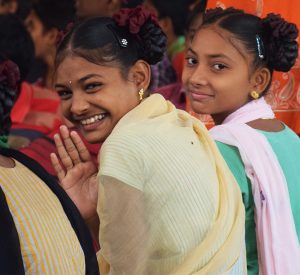
Fortunately, there is a solution for breaking the cycle of poverty. When a new water well is drilled in a village, almost immediately, children can return to school. With clean water comes improved health which this leads to more days in school. And when this clean water is accessible, there is enough time for all children, boys and girls, to attend their classes. More educational opportunities leads to better economic prospects. Better economic prospects leads to more stable families in the future. To put it simply, giving a village clean water breaks the cycle of poverty by making education possible.
Set Free plays a role in increasing the amount of free time children have, proving more equality for women, improving the health of a village, and breaking the cycle ofif poverty in over 30 villages each month. But there is a bonus benefit we see when Set Free goes into a village to give fresh water. In everything we do, we believe we exist first and foremost to bring God’s love to people through a relationship with Jesus Christ. We know that Christ makes all the difference in a person’s life, but we didn’t realize that Jesus also makes an impact in the percentage of children who receive an education. According to our partners in Southeast Asia who serve the rural poor, around 10% of school-aged children attend school prior to receiving their village well. This increases to 45% after the well is completed. But amazingly, when the majority of the villagers become Christian disciples, this percentage increases again to nearly 75%. This is a huge benefit to the future generation, and we invite you to be a part of the solution. When you make your donation to Set Free, you are not only improving the quality of life now – you are breaking the cycle and changing the course of a child’s future. Give fresh water today.
Sources:
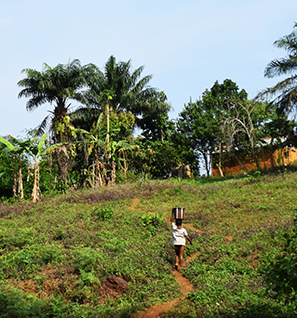
See how far your dollars go in making an impact in the lives of others.
Follow us on social: